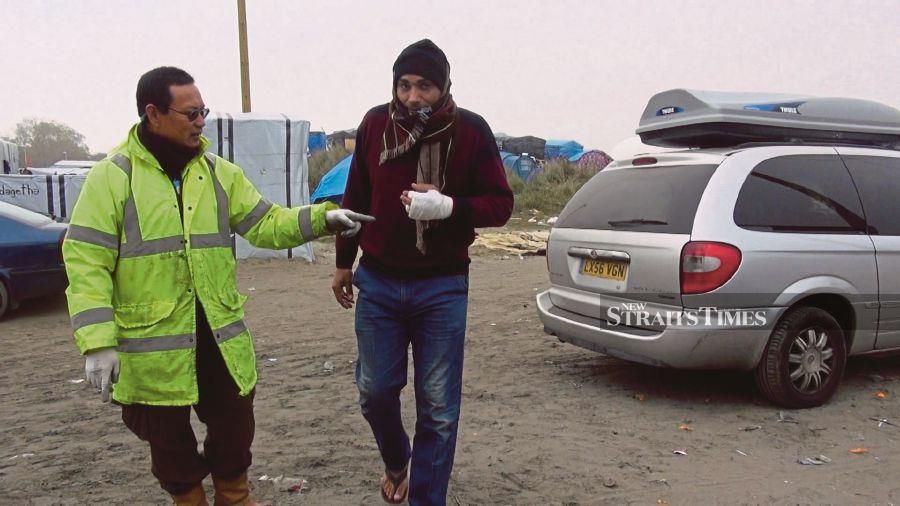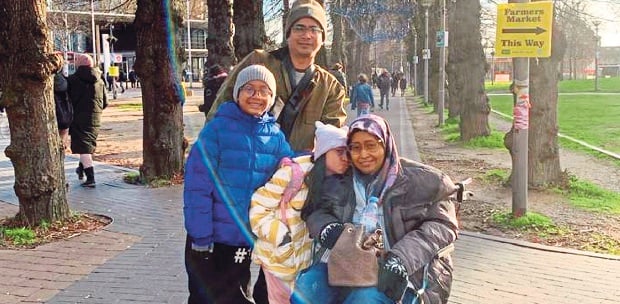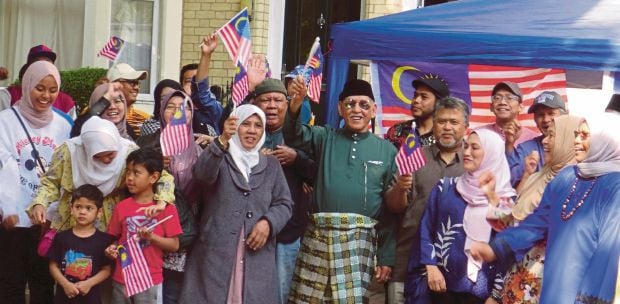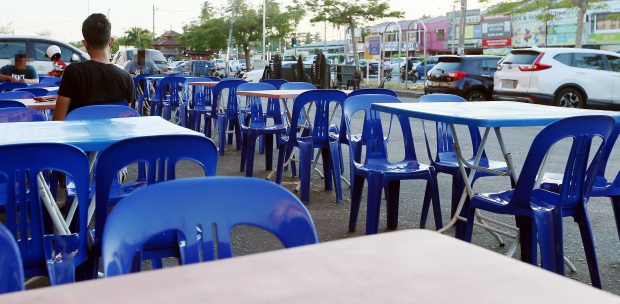LONDON: News and debates about the fate of immigrants arriving in small boats on the shores of England recently brought back memories of the few times I spent in the Jungle of Calais, where about 10,000 refugees made the refugee camp in northern France their home while they were being rehoused.
Many had their sights set across the channel — the United Kingdom. I made my first trip to the Jungle in November 2015 .
It was cold and wet. Displaced people from war-torn countries such as Syria, Eritrea, Iraq and Afghanistan were sheltered under makeshift tents in freezing temperatures.
Not too far away from the settlements was a very familiar artwork — the signature of Banksy — portraying Steve Jobs, the son of Syrian immigrants and founder of Apple.
But the graffiti had been vandalised with big letterings, LONDON CALLING, reflecting the feelings of Jungle residents.
During the visits until the temporary settlement was demolished in 2017, I met many refugees who talked about their desire to find a new life in the UK.
Most speak a smattering of English. Many were professionals in their own countries but all were willing to risk their lives and cross the channel illegally, hide under carriages of the Eurostar, or in the back of food trucks, to make this dream happen.
The demolition of the settlements only led to the increase in the number of arrivals from the shores of France to England.
And this has been a long running headache and source of tension between the two countries.
Britain had given financial support to help French operations stop the boats from leaving their shores.
Britain alleged that France had not been doing enough to stop these crossings.
In 2018, arrivals were at 8,000 but increased to 45,000 last year after tighter security at the Channel tunnel and ports made it almost impossible to cross by train, truck or ferry.
In November 2021, an inflatable boat in the Channel sank and 31 people died.
The French blamed people smugglers in the United Kingdom and Germany.
Last week, the UK government introduced a proposed legislation to put a stop to migrant boats crossing the English Channel from France.
Home Secretary Suella Braverman had said she could not say whether the bill was compatible with the European Convention on Human Rights, to which UK is a signatory.
A human rights barrister reportedly said: "The bill would prevent a large group of extremely vulnerable refugees from relying on human rights protections, by leaving it up to the home secretary to decide who should be protected and who should be deported, and excluding the courts almost entirely."
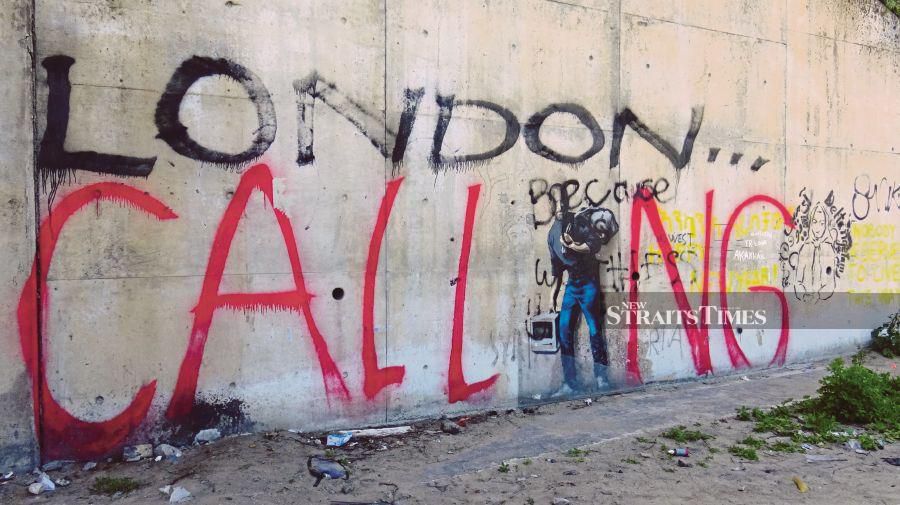
This year, more than 3,000 people have arrived on small boats.
Hotels along the coasts have been roped in to give shelter to the arrivals while their cases are being handled.
Britain has had enough and will refuse the right to asylum for people arriving via irregular migration.
This has sparked a fierce debate, especially from those who view this step as draconian.
Wading into the row was Match of the Day (MOTD) presenter and football legend Gary Lineker, whose tweet about the proposed bill became a national issue, resulting in two MOTDs without any host.
He was taken off the air after he compared the new immigration legislation to 1930s' Germany, which came under the control of Adolf Hitler's Nazi Party in 1933.
The BBC's stand is that its presenters should be impartial, even on social media.
The football pundit was at risk of being suspended but he has gained support from others, such as former footballer and television personality Ian Wright, media figures such Pierce Morgan and former Sky News presenter Adam Boulton.
The government's hardline stance on immigrants arriving in small boats has been criticised for being racially motivated, which the government has denied.
Most of those who arrived in small boats were from Iraq, Iran, Albania and Afghanistan.
It was a different scenario, some noted, when war erupted in Ukraine. People were opening doors and hotels helped accommodate them.
Sofinee Harun, who ran Kitchen in Calais (KIC) with her husband Jamalulail Ismail and son Seif, and helped feed thousands of refugees from 2015 to 2017, shares the sentiment.
She said refugees from the Ukraine were being fast tracked and even had help desks to welcome them at the airports.
KIC didn't just provide food. I witnessed men, young and old, turning up at the makeshift kitchen, hands bleeding after failed attempts to climb the barb wires that separated the settlement from the motorway that would take them to freedom.
Jamalulail would bandage the wounds and listen to their stories.
One night, Sofinee took me to meet a family from Syria just to persuade the youngsters not to take the risk to climb onto trucks in the motorway or hide under the carriages of trains to Dover.
"They had arrived here on foot, trains and trucks from Damascus and they shouldn't risk their lives anymore," said Sofinee.
A few days earlier, Jamalulail and the elders in the camp had buried a 13-year-old who survived the horrifying journey to escape the Taliban, only to fall off a lorry in a French highway that he hoped would lead to a better future.
Travel blogger-turned-volunteer Rayyan Haries, who has seen the arrivals of refugees in boats on the shores of the Greek island of Lesbos, has heard and seen it all.
He said he would never forget images of grateful old women kissing his hands and small children bundled up in life jackets.
"There are politics that are beyond our comprehension, but these are real people with real problems.
"They are more than just statistics. Let us put race, religion and the colour of skin behind us.
"They are fleeing war-torn countries in search of safety.
"We can all help in our own way," Rayyan said.
"When you see dozens of boats as dots in the horizon coming towards you, it is really daunting.
"You feel scared because you don't know what to expect. But you know you must help.
"You are the first line of friendly faces they see after experiencing hostility and tear gas along the way," he added.
He said no one in his right mind would put himself and his family in small dinghies to cross the rough ocean unless he was in desperate need for safety.
Rayyan, who is pursuing an MSc in International Humanitarian Affairs at the University of York and will soon attend a summer school at the University of Oxford to study forced migration, voiced his disappointment at the proposed bill.
"Disappointed, really. Especially as some of the countries are signatories to the human right charters."
The debate is unlikely to go away soon.
And the arrivals in small boats are unlikely to stop as well, as long as the immigrants can see a glimmer of hope.


